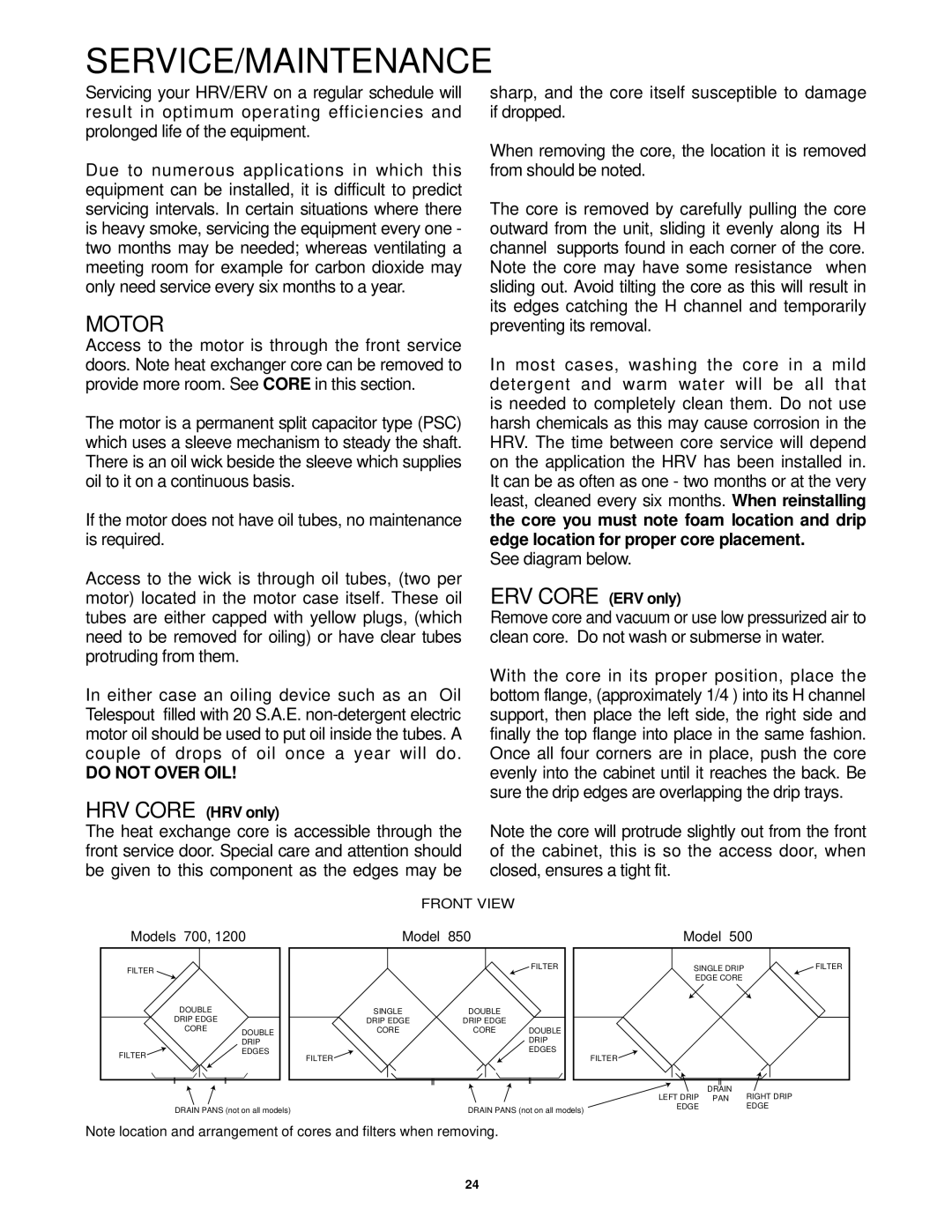700ERV, 700FD/DD, 1200ERV, 500DCS, 1200FD/DD specifications
Lifebreath offers a range of residential ventilation solutions designed to ensure optimal indoor air quality with the Lifebreath 1200FD/DD, 500ERV, 850FD/DD, 700FD/DD, and 500DCS models. These systems are engineered for energy efficiency, user comfort, and advanced air management technologies.The Lifebreath 1200FD/DD is a robust energy recovery ventilator suitable for larger homes. Its main feature is the dual-core technology that maximizes heat and energy recovery while ensuring fresh air supply. The built-in filter system removes airborne pollutants, enhancing indoor air quality. Users can enjoy a balanced airflow with an easy-to-use control interface, making it ideal for modern living.
The Lifebreath 500ERV is designed for smaller spaces, offering energy recovery ventilation with a compact footprint. Its efficient design extracts stale air while simultaneously introducing filtered fresh air. The ERV technology helps manage humidity levels, providing a stable indoor environment, particularly beneficial in varying climates. This model emphasizes quiet operation, ensuring minimal disruption in residential areas.
The Lifebreath 850FD/DD combines versatility and efficiency, featuring flexible ducting options and a powerful fan system. Its dual-core structure allows improved heat recovery, promoting energy conservation. This model is ideal for medium-sized homes where balancing airflow is crucial for comfort.
Next, the Lifebreath 700FD/DD stands out for its advanced filtration and heat recovery capabilities. This unit is equipped with a high-efficiency filter that captures a wide range of airborne particles, ensuring the air quality meets modern health standards. Its sleek design and quiet operation make it a popular choice among homeowners.
Finally, the Lifebreath 500DCS model is tailored for decentralized ventilation needs. It features a compact design that can be installed in various settings, allowing for flexibility in air management. The DCS technology ensures optimal performance with minimal energy consumption, making it an eco-friendly choice.
Overall, Lifebreath offers innovative solutions that cater to diverse residential ventilation needs. The integration of advanced technologies across their models ensures optimal air quality, energy efficiency, and user comfort, making them an excellent choice for health-conscious homeowners.

